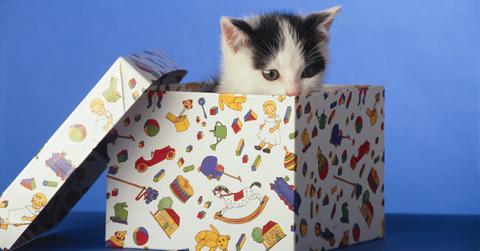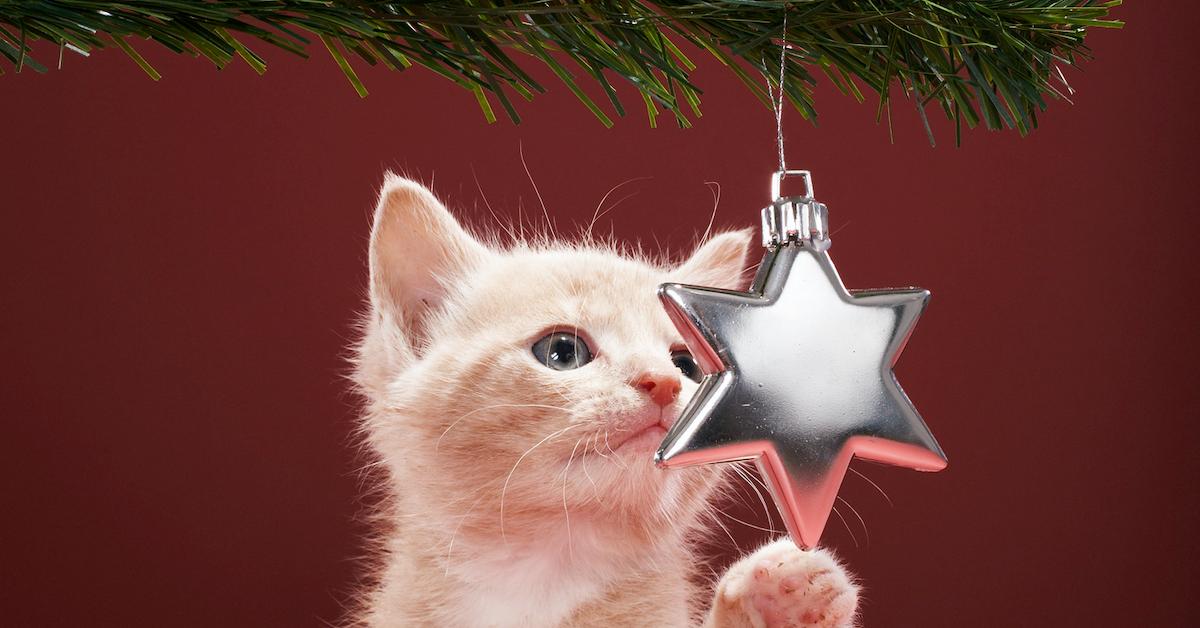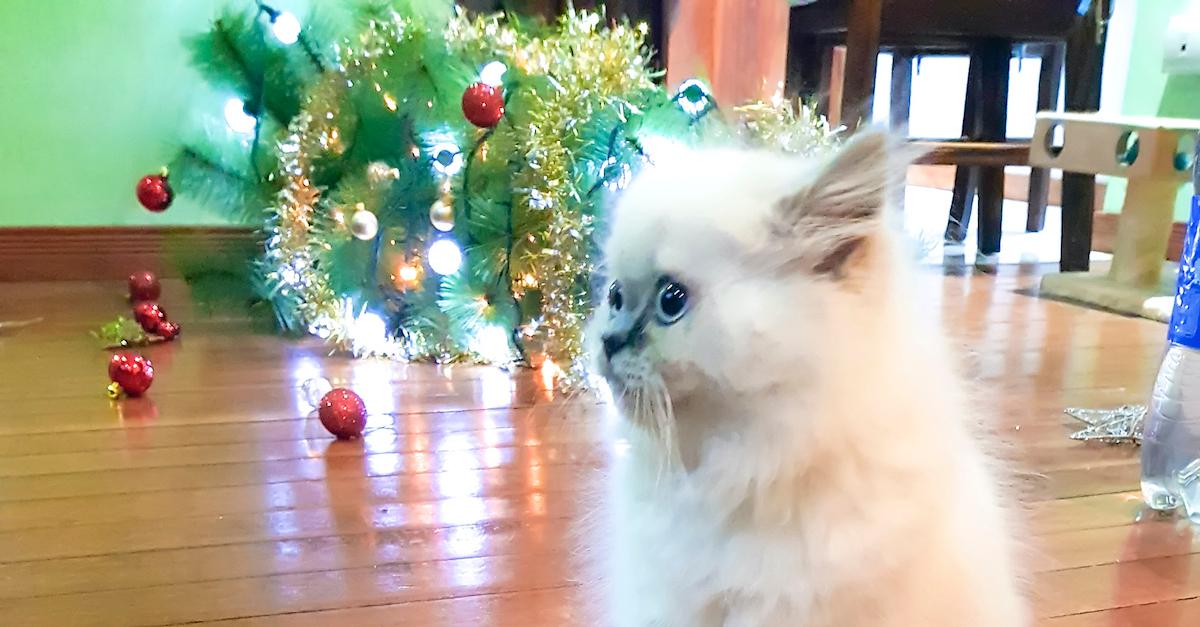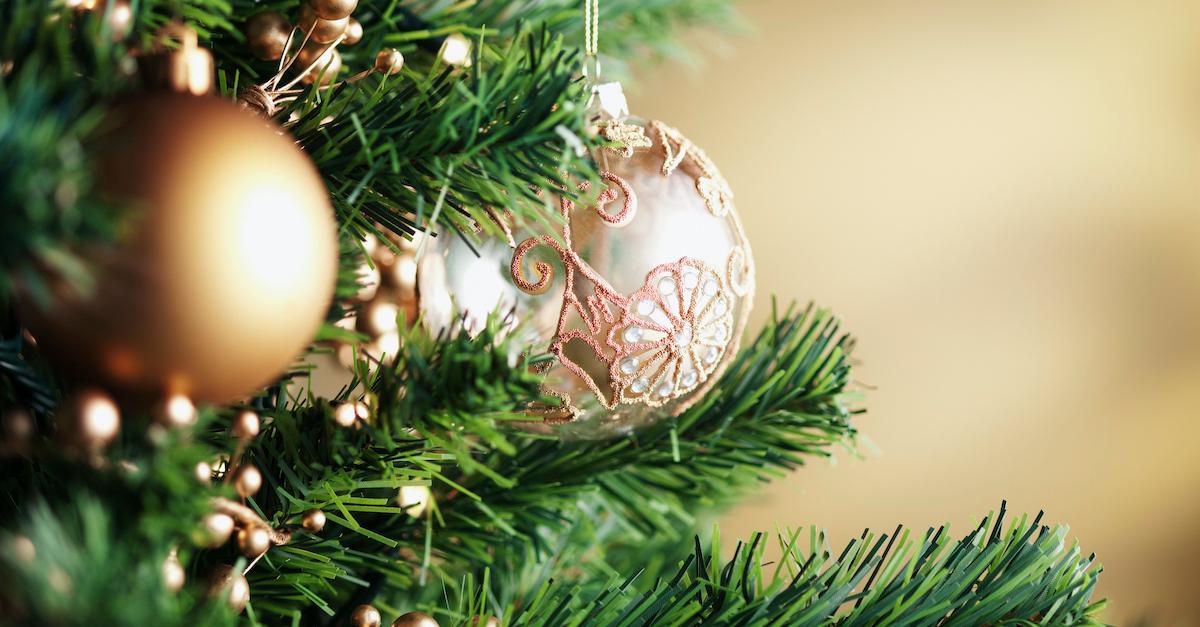Here's How To "Cat Proof" Your Christmas Tree This Holiday Season
Experts recommend wrapping the trunk in foil and keeping a scent cats dislike around the base of the tree.
Updated Dec. 2 2024, 12:46 p.m. ET

Cats can be greatest pets — they're generally low-maintenance, relatively clean, and provide pet parents with never-ending amounts of love and affection. However, many of them effectively become the Grinch during the holiday season. As avid climbers, cats thoroughly enjoy scaling, jumping on, and sometimes completely knocking down Christmas trees, making for a true holiday disaster.
That being said, cat-proofing — or at least keeping your cat away from your Christmas tree — is absolutely vital for a jolly (and smooth-sailing) holiday celebration. Keep reading for tips and tricks to ensure your beloved fur baby doesn't cause legitimate chaos.

How do you keep a cat away from a Christmas tree?
Davey recommends keeping a scent cats dislike on or around the tree. You could try scattering orange peels at the base, spray a citrus scent on the branches, or decorate with apple cider vinegar-coated pine cones near the base. Wrapping the trunk in foil also keeps cats away because they don't like how it feels on their paws.
Even with the foil and scent deterrents, however, your cat may persevere and attempt to climb your Christmas tree. Just in case, secure your tree with a sturdy base, and display it away from any furniture — such as couches or bookshelves — that your cat might use as a vehicle to pounce. Buying non-shiny ornaments and securing them with wire twist ties, is also strongly suggested.

Are pine needles toxic to cats?
According to Texas A&M University's Veterinary Medicine & Biomedical Sciences department, pine needles can cause serious health concerns in your feline if consumed. Specifically, Dr. Lori Teller says, "In general, they can cause oral irritation and may cause your pet to salivate and drool. Excessive quantities can lead to gastrointestinal upset."
Hill's Pet advises that for those who wish to indulge in a live Christmas tree, they're better off with a fir or a spruce.
Additionally, Christmas presents the opportunity for other cat-related hazards, such as cats potentially ingesting ribbons, strings, tinsel and small ornaments. If you're hoping to avoid disaster, Hill's advises any potential choking hazards to be placed higher on the tree so your kitty cannot reach.

Are there cat-proof trees?
There are several effective ways to deter a cat from messing with your Christmas tree, but unfortunately, there aren't specific varieties that fend off curious kitties. However, according to PETA, certain types are safer than others, such as plastic trees, which minimize the exciting new scent presented by a real tree.
PETA also recommends opting for something smaller, as smaller trees pose less of a risk to your beloved fur baby and your living room. The animal rights organization also suggests waiting a few days before setting the tree up with ornaments after you bring it home. This way, your cat can become acclimated to it before it's standing upright and decked out in breakables.
Once your tree is safely erected and decorated, buy a tree skirt to prevent your kitten from drinking the water at the base. The water contains preservatives that can make your cats stomach upset, according to Cat Tipper. Once you have all your bases covered, you'll be ready to safely — and efficiently — erect your Christmas tree (which will hopefully stay standing, as long as your cat behaves).
This article, originally published on Dec. 21, 2020, has been updated.